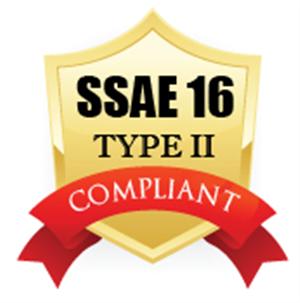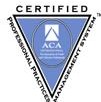TRAINING AND COMPLIANCE
Committed to Quality Service
TRAINING
 Strict hiring policies ensure our employees are the most qualified and well trained of any in our field. Not only are employees given extensive training upon hire, but continuous training is done throughout employment. NRA’s training initiative is conducted in four phases (Compliance Training and Testing, Collection Skills Training, System Training, and On-going Training) consisting of a classroom setting for training and testing. NRA’s quality assurance program provides staff with monthly feedback, allowing each employee to work directly with their manager. This allows our collection representatives to develop tools for increasing their productivity and developing new techniques to improve the quality of their work.
Strict hiring policies ensure our employees are the most qualified and well trained of any in our field. Not only are employees given extensive training upon hire, but continuous training is done throughout employment. NRA’s training initiative is conducted in four phases (Compliance Training and Testing, Collection Skills Training, System Training, and On-going Training) consisting of a classroom setting for training and testing. NRA’s quality assurance program provides staff with monthly feedback, allowing each employee to work directly with their manager. This allows our collection representatives to develop tools for increasing their productivity and developing new techniques to improve the quality of their work.
During the initial orientation and training period all employees are tested for compliance with the Fair Debt Collection Practices Act (FDCPA). Revenue recovery staff at the time of initial orientation and training period is also tested on Professional Telephone Collector Techniques (PCTC) and Essentials Collection Skills and Techniques. Compliance recommends revenue recovery staff is thereafter tested annually on the Health Insurance Portability and Accounting Act (HIPAA) and the FDCPA. Our compliance department not only provides the guidance for training and testing, but also updates and trains the staff on any changes to federal, state and local laws, mandates and regulations that affect the collection of a debt.
COMPLIANCE
As an ethical and professional organization, we take our responsibilities very seriously. Paramount importance is given to Statutory, Security, and Service Level Compliance. These are achieved through an on-going process of training, monitoring, retraining and evaluation.
NRA utilizes a management system that is bottom line focused with the emphasis placed on client satisfaction. By identifying non-conformities and client issues, we’re able to isolate the issues, take action to make immediate corrections, while opening up the lines of communication between and within departments to develop real solutions. This process helps to eliminate repeated errors which directly affects NRA’s bottom line and ensures client satisfaction by providing quality and timely service from placement.
Our internal compliance structure has been designed to ensure that all aspects of the collection process are managed in a manner that identifies any non-conformance that may affect our collection and compliance performance. NRA’s Compliance Officer is responsible for ensuring that we comply with all federal, state, and local laws and regulations. We continually review and update company policies and procedures to meet new requirements, and we regularly participate in continuing education programs to stay abreast of changes on the law.
NRA maintains full compliance with laws and regulations that include, but are not limited to, the following:
- Professional Practices Management Services (PPMS)
- Fair Credit Reporting Act (FCRA)
- Fair Debt Collection Practices Act (FDCPA)
- Gramm-Leach-Bliley Act (GLBA)
- Health Insurance Portability and Accountability Act (HIPAA)
- Licensing, Insurance, & Bonding
Steps to ensure Compliance after training:
- Corporate Attorney
- Dedicated Manager of Compliance
- Blind Monitoring
- QA Tape Recording of Telephone Collections
- Random Audits
- Independent Audits
- Management Development Program
- Skills Development Reporting and on-going Training Program
- World-Class Recruiting and Screening Program
- Background Checks for all new hires
PCI COMPLIANCE
Our PCI DSS certification is accepted by all major credit card brands in place of their individual compliance programs.
The twelve basic PCI requirements (supported by more detailed sub-requirements) are:
- Install and maintain a firewall configuration to protect data
- Do not use vendor-supplied defaults for system passwords and other security parameters
- Protect stored data
- Encrypt transmission of cardholder data and sensitive information across public networks
- Use and regularly update anti-virus software
- Develop and maintain secure systems and applications
- Restrict access to data by business need-to-know
- Assign a unique ID to each person with computer access
- Restrict physical access to cardholder data
- Track and monitor all access to network resources and cardholder data
- Regularly test security systems and process
- Maintain a policy that addresses information security









